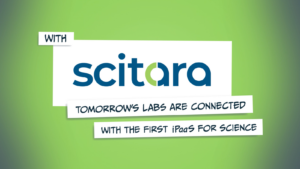Today’s biopharmaceutical market accounts for as much as 25% of the total pharmaceutical market, with projections for rapid growth over the next 5 years. This significant growth can be attributed to the increasing acceptance of biopharmaceutical therapies due to their ability to effectively treat previously untreatable diseases. The recent global pandemic has also brought to light the importance of biologically produced therapies such as the fast-tracked COVID-19 vaccines.
In the biopharmaceutical industry, nearly every scientific innovation is facilitated by the collection and analysis of data. Technological advancements such as Next-Gen sequencing, precision medicine, digital imaging, DoE and dynamic modeling to support process development have vastly increased the complexity of data management. Bioinformatics, an interdisciplinary field of science that combines biological data with techniques for information storage, distribution, analysis and data modeling to improve our understanding of biological processes, has therefore emerged as a critical factor in the development of a cohesive informatics strategy for the biopharmaceutical laboratory.
Biopharmaceutical Life Cycle Management
In the fast-paced world of bioprocessing, outdated and legacy systems are unable to keep pace with increasing demands and technological advancements. Maintaining a competitive edge in today’s market requires digital connectivity across the entire process workflow. A strong foundation for Biopharmaceutical Life Cycle Management can be established through adaptive enterprise architectures and agile connectivity to laboratory instrumentation and applications.

While digital transformation has emerged as one of the highest priority initiatives in the scientific industry as a whole, the development of software tools designed to address the specific needs of the biopharmaceutical company has significantly lagged behind. Single-use bioreactor technology and continuous manufacturing have also presented significant challenges for digital transformation efforts in the biopharmaceutical industry. An integral part of the biopharmaceutical lifecycle is integrating workflows, laboratory equipment, and contextualized data..
Innovative Solutions for Accelerating Biopharmaceutical Development
As the market for biological therapies and vaccines continues to grow, eliminating these roadblocks is more important than ever before. Two companies with cutting edge technologies have now joined forces to provide a novel solution for effectively addressing these challenges within the biopharmaceutical laboratory. IDBS, a leading innovator in Biopharmaceutical Lifecycle Management (BPLM), and Scitara, a pioneer in laboratory IoT, have entered into a strategic partnership to create a combined solution that will significantly extend IDBS Polar™ BPLM’s laboratory data connectivity and instrument integration capabilities. This integrated solution augments the Polar workflow capabilities by addressing the challenge of sharing and digitalizing laboratory data across the biopharmaceutical lifecycle, while ensuring data integrity and supporting insight.
Scitara’s advanced tools for sophisticated workflow automation are powering the digital transformation of scientific laboratories by enabling them with modern lab data connectivity infrastructure and solutions to accelerate biopharmaceutical development. The Scitara Digital Laboratory Exchange (DLX™) cloud platform revolutionizes data connectivity by combining the benefits of modern cloud-based architecture, with vendor-agnostic, secure, regulatory compliant, laboratory-specific functionality. Their universal connection technology provides the conduit for constructing multi-destination data flows and configuring event-driven data exchange between multiple connections, including legacy devices, instruments and applications.
The benefits of this synchronized solution include:
- Enables sharing and digitalizing laboratory data across the biopharmaceutical lifecycle
- Removes risky and inefficient manual processes
- Delivers high quality contextualized data to support informed decision making
- Reduces the time and complexity of implementations via plug and play integration with instruments, applications and enterprise platforms
- Ensures data integrity and facilitates regulatory compliance through secure data communication and exchange infrastructure
Conclusion:
Biopharmaceuticals are rapidly becoming the new frontier in medicine. It is imperative that these innovative therapies reach the market quickly and that the development costs are reduced. Not only are these drivers crucial for the biopharmaceutical company to remain competitive, in the case of the current COVID-19 pandemic, but it is also imperative to saving lives.
Effectively managing the biopharmaceutical life cycle requires digitally transforming the entire developmental workflow through the elimination of data silos and manual processes. Once digital connectivity is achieved, data accessibility and data integrity are facilitated through the application and integration of multiple innovative informatics solutions. Biopharmaceutical laboratories face unique operational and technical challenges that can only be addressed with best-in-class informatics tools, such as the Scitara DLXTM platform and the IDBS Polar BPLM platform. The seamless integration of these workflows, instrumentation and data provides the foundation needed to efficiently manage the biopharmaceutical lifecycle, ultimately reducing the overall time and cost of developing these novel therapies.
Why Biopharmaceutical Lifecycle Management for You
The biopharmaceutical industry is poised to revolutionize the future of healthcare. Challenges that are unique to the industry must be overcome to realize the full potential of these life-changing therapies. By incorporating the following principles into your overall digital transformation strategy, you can address many of these challenges with an effective Biopharmaceutical Lifecycle Management approach:
- Digitally transforming the entire biopharmaceutical development workflow, including instrument connectivity, will provide a solid foundation for effective Biopharmaceutical Lifecycle Management.
- Integrating the entire workflow for seamless peer-to-peer connectivity for all laboratory instrumentation and applications will enable comprehensive data transformation and workflow automation.
- Employing best-in-class solutions, such as the Scitara DLX™ platform in concert with the IDBS Polar™ platform, will provide you with the necessary tools to achieve operational excellence in the biopharmaceutical laboratory.
- Adopting a “data first” approach to Biopharmaceutical Lifecycle Management will reduce the time and cost of developing novel biological therapies and vaccines.
